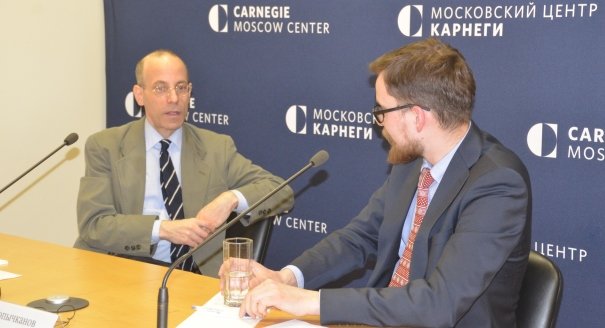Registration
Thank you!
You will receive an email confirming your registration.
Moscow, Washington, and Beijing hold dissimilar and sometimes opposing views on several security issues, including ballistic missile defense, strategic conventional weapons, and the INF Treaty. The conflict in Ukraine and the chill in U.S.-Russian relations have further complicated cooperation on security matters.
Richard Weitz, senior fellow and director of the Center for Political-Military Analysis at the Hudson Institute, spoke on the current dimensions of Russia-U.S.-China trilateral security relations and assessed the potential for cooperation in the sphere of nonproliferation and nuclear disarmament. Carnegie’s Petr Topychkanov moderated.
